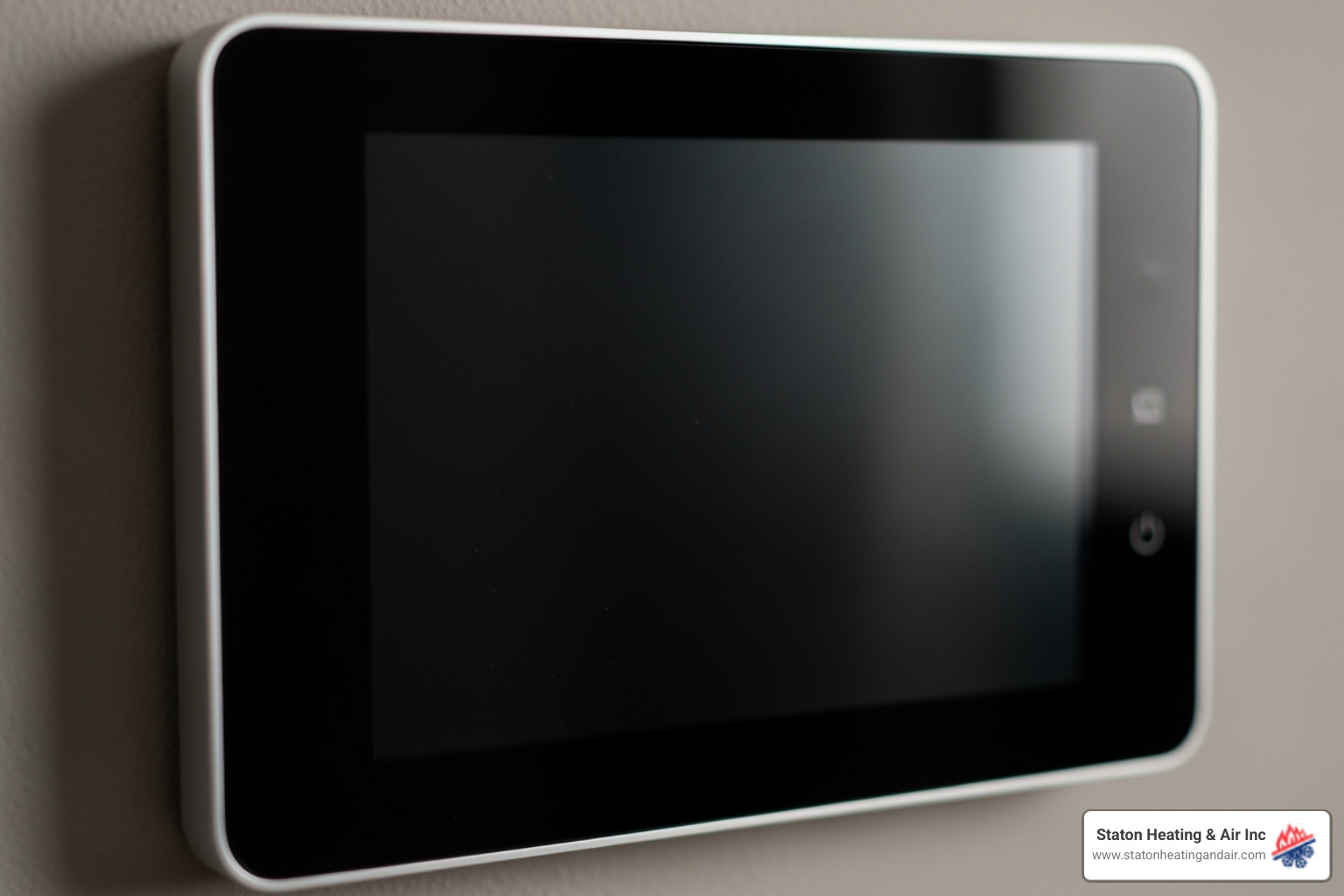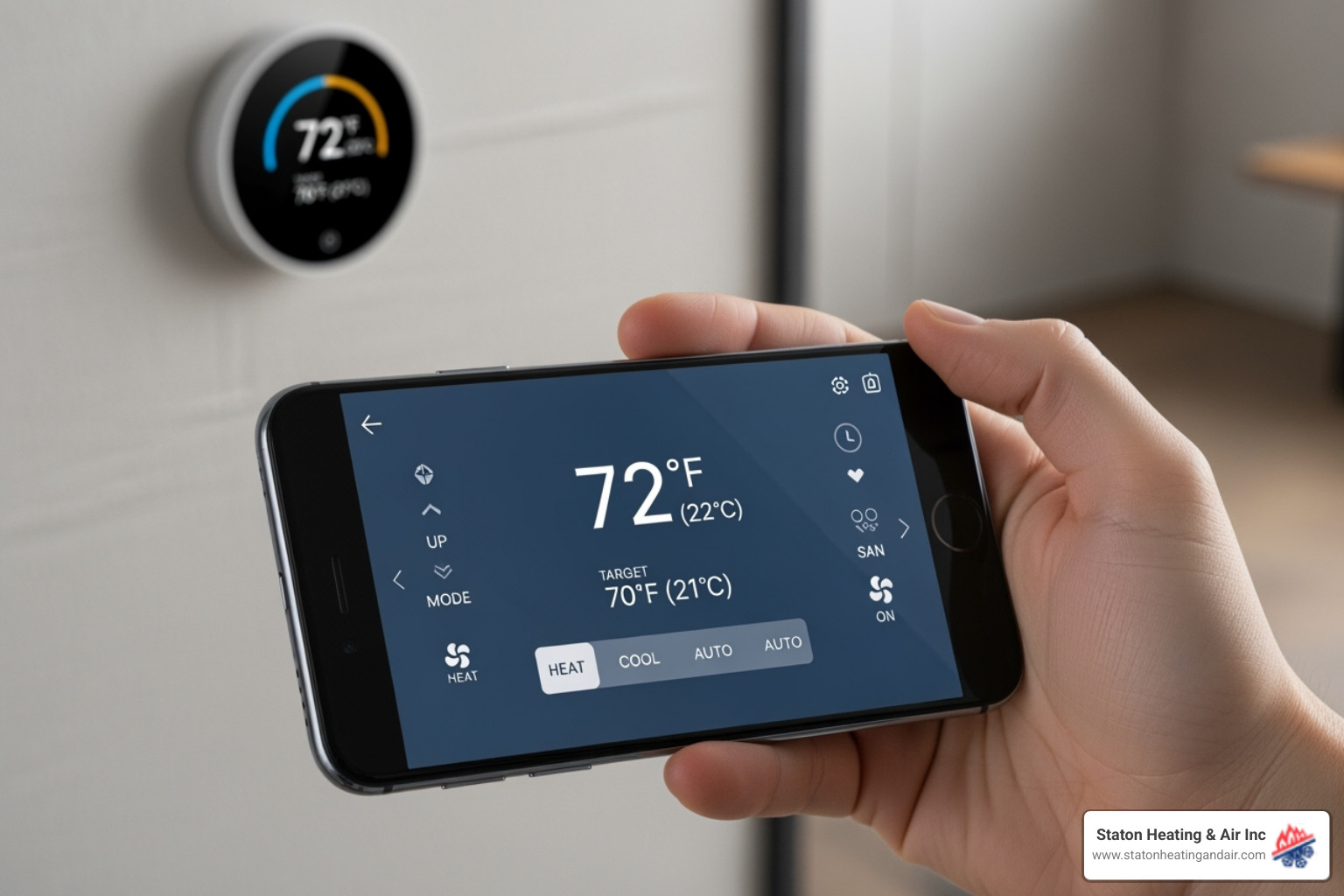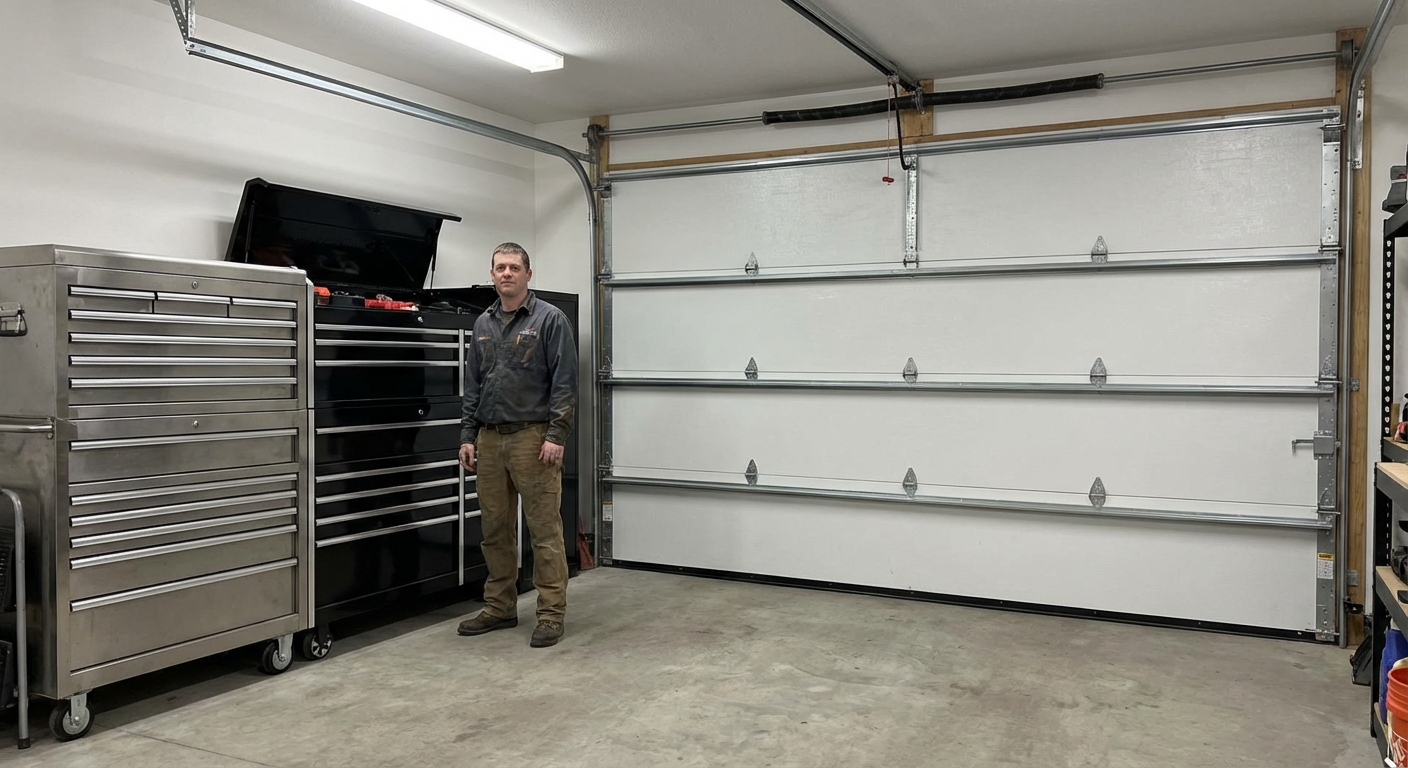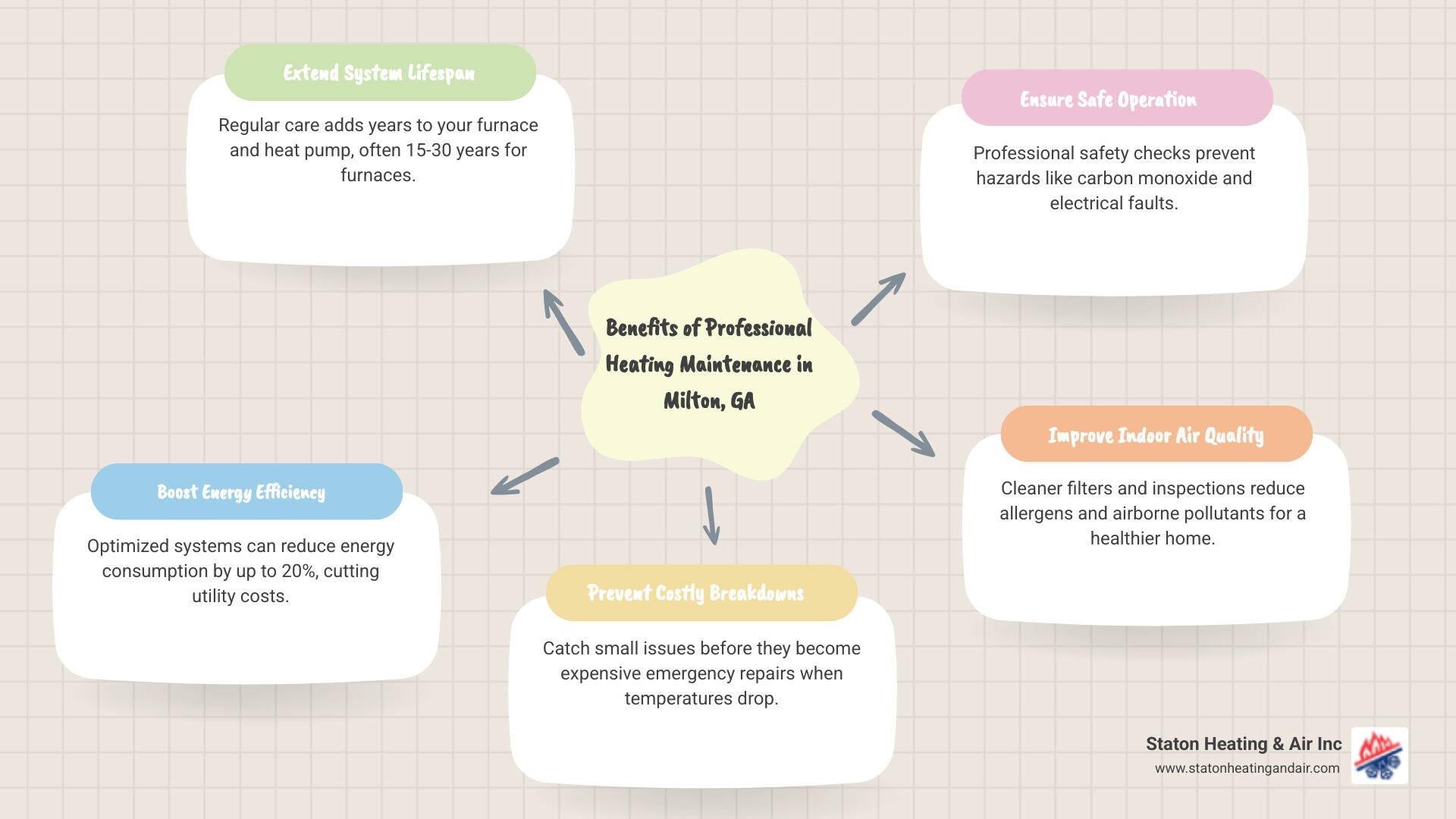Troubleshooting Thermostat Wiring: A Georgia Homeowner's Guide
Why Thermostat Wiring Matters for Your Georgia Home
Your thermostat is the command center for your HVAC system, and when its wiring fails, you'll notice immediately—especially during Georgia's sweltering summers or sudden cold snaps. Thermostat wiring repair ga is a critical service when your home's comfort system starts acting up. A malfunctioning thermostat doesn't just mean discomfort; it can lead to wasted energy, higher utility bills, and even damage to your HVAC system.
Quick Answer: Common Signs You Need Thermostat Wiring Repair in Georgia
- Blank or unresponsive thermostat display
- HVAC system fails to turn on or turns off unexpectedly
- System cycles on and off rapidly (short cycling)
- Room temperature doesn't match thermostat setting
- Unexpectedly high energy bills
- Thermostat is over 10-15 years old
For comprehensive HVAC maintenance tips, check out our guide to keeping your system running smoothly. If you need immediate professional help with your thermostat wiring, contact our certified technicians for fast, reliable service.
This guide will help you identify thermostat wiring issues, understand wire functions, and troubleshoot common problems safely. We'll also cover when to upgrade to a modern thermostat to save money and improve comfort.

Signs Your Thermostat Wiring Needs Attention

Your thermostat is the brain of your heating and cooling system. When its wiring fails, your home's comfort can quickly fall apart. Here are the key signs that your thermostat wiring needs attention.
An unresponsive display is a common first clue. A blank, flickering, or non-responsive screen often points to a power issue, which usually traces back to the wiring.
Another telltale sign is when your HVAC system won't turn on or off as directed. If the system ignores your commands or runs nonstop, the thermostat is likely failing to communicate with the HVAC unit. This is when thermostat wiring repair ga becomes necessary to restore the connection.
Short cycling—when the system turns on and off rapidly—is another red flag. This inefficient cycle puts extra wear on your equipment and is often caused by mixed signals from faulty wiring.
If you notice inaccurate temperature readings, where the room feels much hotter or colder than the thermostat's setting, the sensor or its connections may be failing.
Unexpectedly high energy bills can also point to a faulty thermostat. If your costs jump without a clear reason, your thermostat may be forcing the system to run longer than necessary, wasting energy and money.
Finally, age is a factor. If your thermostat is over 10-15 years old, it's nearing the end of its lifespan. Wiring issues often arise in older units, and they lack the efficiency of modern models. For more details, see our post on 7 Signs You Need to Replace Your Thermostat.
If you're having issues with your furnace thermostat specifically, our guide on how do you know if your furnace thermostat is bad can offer more insight.
Why Symptoms Worsen in Georgia's Climate
Georgia's climate puts significant stress on HVAC systems, revealing wiring weaknesses quickly.
Our long, humid summers keep air conditioners under a heavy, sustained load. A minor wiring issue that might go unnoticed in milder weather can become a major breakdown under the constant demand of a Georgia summer.
Likewise, sudden winter cold snaps force your heating system to work hard without warning. If the thermostat wiring is compromised, you could be left in the cold. Georgia's weather demands reliable performance, and faulty wiring is often the first component to fail under pressure, turning a small inconvenience into a complete system failure.
Understanding Basic Thermostat Wiring
To troubleshoot a thermostat wiring repair ga issue, it helps to know what the colorful wires behind your thermostat do. They are the communication lines to your HVAC system, and most manufacturers follow common color conventions.

Common Thermostat Wire Color Codes
Most residential thermostats use low-voltage wires. While you should always verify your specific setup, here are the general functions for each color:
- R wire (Red): Provides 24-volt power to the thermostat. Some systems have separate Rc (cooling) and Rh (heating) wires, often linked by a jumper.
- G wire (Green): Controls the system's fan, allowing it to circulate air independently of heating or cooling.
- Y wire (Yellow): Sends the signal to turn on your air conditioner for cooling.
- W wire (White): Activates your furnace or a heat pump's auxiliary heat.
- C-wire (Common): Provides continuous 24-volt power. This is essential for modern smart thermostats to power features like Wi-Fi and touchscreens. Without it, you may face battery drain or connection problems.
- O/B wire (Orange/Brown): Used for heat pumps, this wire controls the reversing valve that switches the unit between heating and cooling modes.
For a more detailed visual guide, How to Wire a Thermostat offers helpful diagrams.
Wiring Differences for Georgia HVAC Systems
The wiring configuration depends on your HVAC system type, which is crucial for any thermostat wiring repair ga project.
Furnace and AC systems are the most common. They typically use R, G, Y, and W wires, plus a C-wire for modern thermostats. This four or five-wire setup is relatively straightforward.
Heat pump systems, popular in Georgia's climate, are more complex. They use an O/B wire to control the reversing valve for switching between heating and cooling. A typical heat pump setup includes R, G, Y, W (for auxiliary heat), and O/B wires. If you're unsure if the issue is your thermostat or the system, our guide on How do you know if your furnace thermostat is bad can help.
The importance of the C-wire cannot be overstated for smart thermostats. These devices need continuous power for their advanced features. If your home lacks a C-wire, a professional can often run a new wire or install a power adapter to ensure your smart thermostat works reliably.
A Step-by-Step Guide to Thermostat Wiring Repair in GA
While some thermostat wiring repair ga tasks are best left to professionals, you can safely troubleshoot some common issues yourself. Safety is the top priority, so always follow these steps before you begin.
Safety First: Preparing for the Repair
- Turn Off Power: Go to your circuit breaker and turn off the power to your entire HVAC system (both indoor and outdoor units). Simply turning the thermostat "off" is not enough.
- Confirm Power is Off: Use a voltage tester on the thermostat wires to ensure there is no electrical current. If the tester lights up, do not proceed and call a professional.
- Gather Tools: Have a screwdriver, wire strippers, and electrical tape ready.
- Take a Photo: Before disconnecting anything, take a clear photo of the current wiring. This will be an invaluable reference.
Troubleshooting Common Thermostat Wiring Repair GA Issues
With the power off, remove the thermostat faceplate to access the wiring.
- Inspect for Loose Wires: Gently check if any wires are loose at their terminal connections. Vibrations can cause them to loosen over time.
- Check for Corrosion: Look for green or white buildup on the wires or terminals, which is common in Georgia's humidity. This corrosion can block electrical signals and should be gently cleaned off with a fine brush.
- Look for Damaged Insulation: Check for any cracked, frayed, or melted wire insulation, which can cause short circuits.
- Tighten Connections: Use a screwdriver to gently tighten any loose terminal screws. If a wire end is damaged, you may need to strip a small amount of insulation to expose fresh copper before reconnecting. For more guidance, reference resources like How to Wire a Thermostat.
After making adjustments, reattach the faceplate, restore power, and test the system.
When DIY Thermostat Wiring Repair in GA Isn't Enough
A DIY approach is not always the answer. It's time to call a professional if:
- The issue persists after basic troubleshooting. The problem may be with the HVAC control board or wiring inside the walls.
- You see signs of burnt wires or melting plastic. This is a serious fire hazard. Turn off the power at the breaker immediately and call for help.
- Your system needs a C-wire and one isn't present. Installing one can be complex and is best handled by an expert.
- You're upgrading to a complex smart system. A professional ensures correct installation for multi-stage or zoned systems. Our article on Smart Thermostats and HVAC Efficiency explains more about these systems.
Hiring a licensed professional ensures safety and accuracy. Our NATE-certified technicians at Staton Heating & Air Inc. can diagnose complex issues, protect your HVAC system from damage, and ensure your warranty remains intact.
Upgrading Your Thermostat for Better Efficiency
Sometimes, the best fix for thermostat issues is an upgrade. Modern thermostats offer features that improve comfort and energy efficiency, which can make a big difference in Georgia's demanding climate.

Manual vs. Programmable vs. Smart Thermostats
Today's thermostats fall into three main categories:
- Manual Thermostats: The most basic option. You set the temperature, and it stays there until you change it again. They are simple but can waste energy if you forget to make adjustments.
- Programmable Thermostats: These allow you to set a schedule for temperature changes throughout the day and week. This "set it and forget it" automation helps save energy when you're away or asleep.
- Smart Thermostats: These Wi-Fi-enabled devices, many certified by ENERGY STAR®, learn your habits and adjust temperatures automatically. They offer remote control via smartphone, voice commands, and geofencing to maximize both comfort and savings.
Here's a quick comparison:
| Thermostat Type | Features | Energy Savings Potential | Convenience | Best For |
|---|---|---|---|---|
| Manual | Basic on/off, temperature setting | Low (requires constant manual adjustment) | Low | Vacation homes, simple systems, users who prefer manual control |
| Programmable | Set schedules (e.g., 7-day, 5-2 day) | Medium (automates temperature changes) | Medium | Consistent schedules, those wanting to set and forget |
| Smart | Remote control, learning algorithms, geofencing, energy reports, voice control | High (optimizes based on habits & external data) | High | Tech-savvy users, varying schedules, maximum savings |
Benefits of a Smart Thermostat in Georgia
A smart thermostat is particularly beneficial in Georgia. The energy savings alone can be significant, with many homeowners saving 10-15% annually on heating and cooling costs.
Key advantages include:
- Remote Control: Use your phone to cool your home before you arrive on a hot day, so you never walk into a stuffy house.
- Learning Algorithms: The thermostat learns your family's schedule and adjusts temperatures automatically for comfort and efficiency.
- Geofencing: The system can use your phone's location to switch to an energy-saving mode when you leave and return to a comfortable setting as you head home.
According to ENERGY STAR®, these features can help homeowners save $180 or more per year. Proper installation is key to open uping these benefits. While some homeowners can handle basic thermostat wiring repair ga, a professional installation ensures your new smart thermostat is set up correctly, especially if a C-wire is needed. For more on this topic, read our article on Smart Thermostats and HVAC Efficiency.
Frequently Asked Questions about Thermostat Wiring
Here are answers to some of the most common questions we hear from Georgia homeowners about their thermostats.
What is the average lifespan of a thermostat?
Most thermostats last between 10 to 15 years. After a decade, they can lose accuracy and will lack the energy-saving features of modern units. If your thermostat is over 10 years old, replacing it is a smart investment in efficiency and reliability.
How does a properly functioning thermostat save money for Georgia homeowners?
A properly calibrated thermostat runs your HVAC system only when necessary, preventing energy waste from issues like short cycling or constant running. This alone saves money. Upgrading to a programmable or smart model improves these savings by optimizing schedules around your life. By automatically adjusting temperatures when you're away or asleep, these thermostats can save homeowners up to $180 or more per year.
Why is hiring a licensed professional for thermostat installation important?
Hiring a professional for thermostat wiring repair ga and installation is crucial for three main reasons:
- Safety: Professionals are trained to handle electrical components safely, preventing shocks or fire hazards.
- Accuracy: They understand the complex wiring of modern HVAC systems and smart thermostats, ensuring correct installation to prevent damage and maximize efficiency.
- Warranty Protection: Many HVAC manufacturers require professional installation to keep your warranty valid. A DIY mistake could void your coverage, leaving you responsible for expensive repairs.
Your Partner for Reliable Home Comfort in Georgia
In Georgia, your home's comfort depends on every part of your HVAC system working correctly, with the thermostat at its core. A functioning thermostat ensures comfort, manages energy bills, and protects your HVAC investment.
While some minor fixes like tightening a loose wire are manageable, many thermostat wiring repair ga tasks, especially those involving burnt wires or smart thermostat upgrades, require professional expertise.
That's where Staton Heating & Air Inc. comes in. Since 1972, our NATE-certified technicians have provided reliable HVAC services to Metro Atlanta homeowners. We understand the demands of Georgia's climate and are committed to the principle that "Where customers come first!" It's this dedication that earned us the title of 2024's Best HVAC Company in Cumming.
Whether you need a simple repair, a replacement for an aging unit, or an upgrade to a money-saving smart thermostat, our team has the experience to do the job right. We ensure your system is wired safely and performs at peak efficiency.
Don't let thermostat problems compromise your comfort. To take control of your home's climate and energy costs, explore smart thermostat solutions for your home with Staton Heating & Air Inc. today.
Recent Posts
What Our Customers Are Saying


Ready to Transform Your Home?

Recent Blog




















